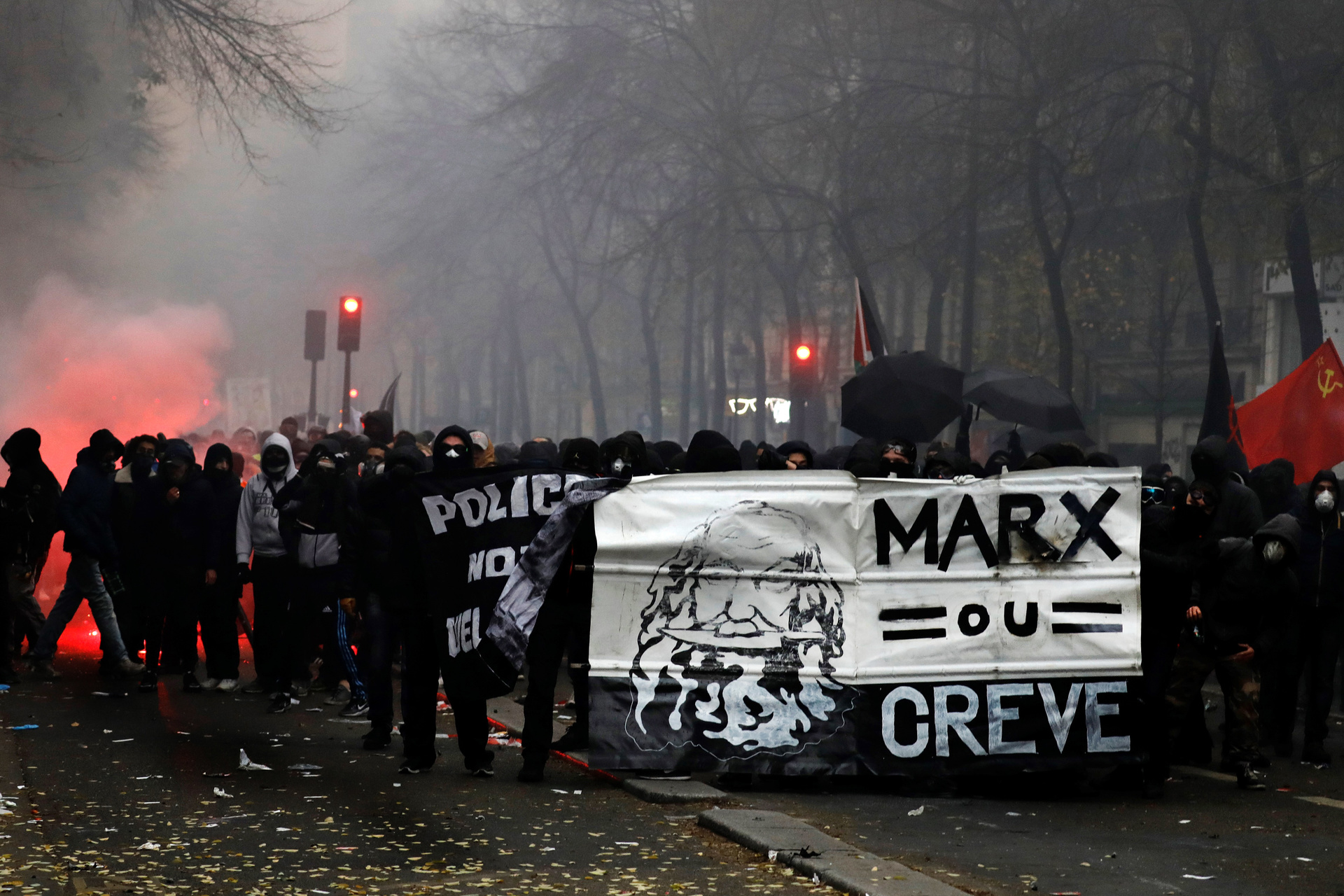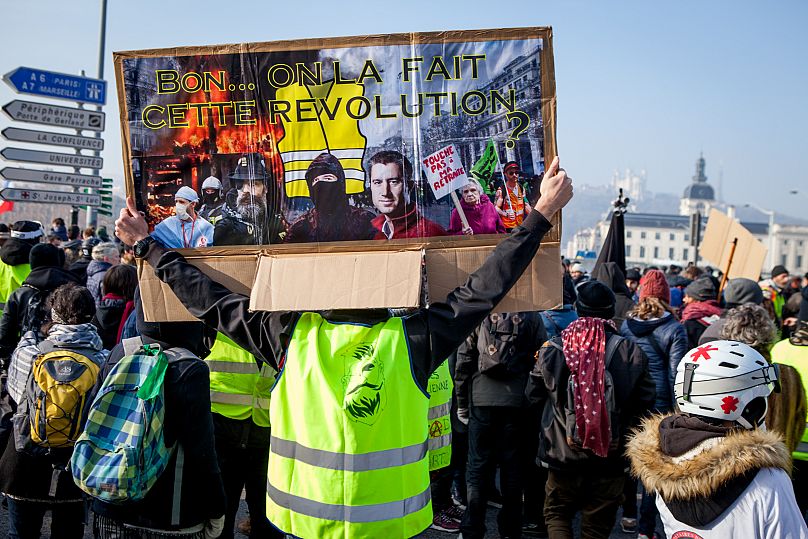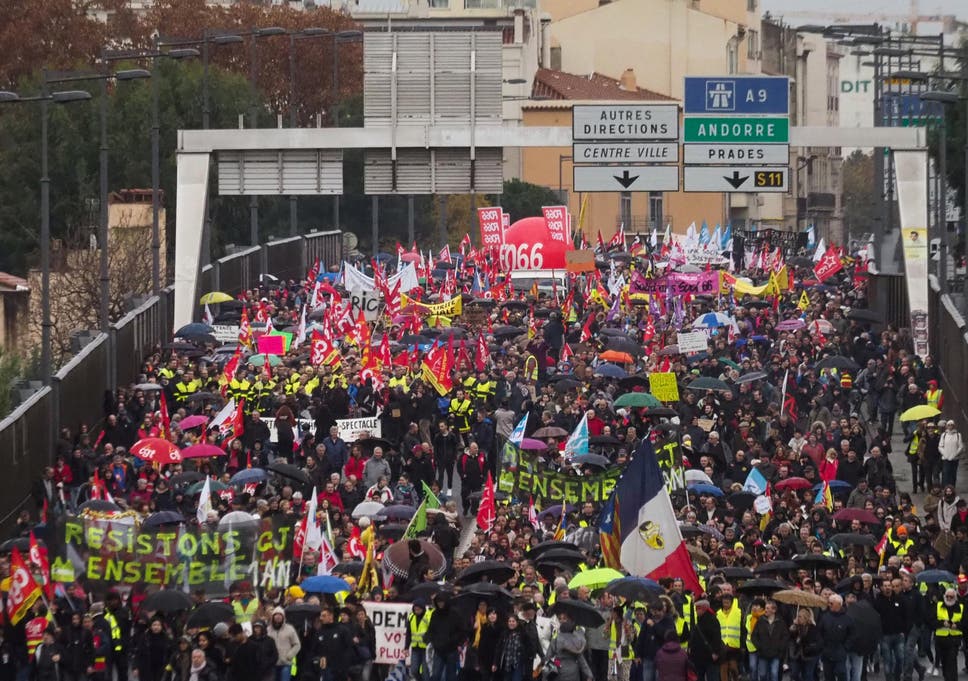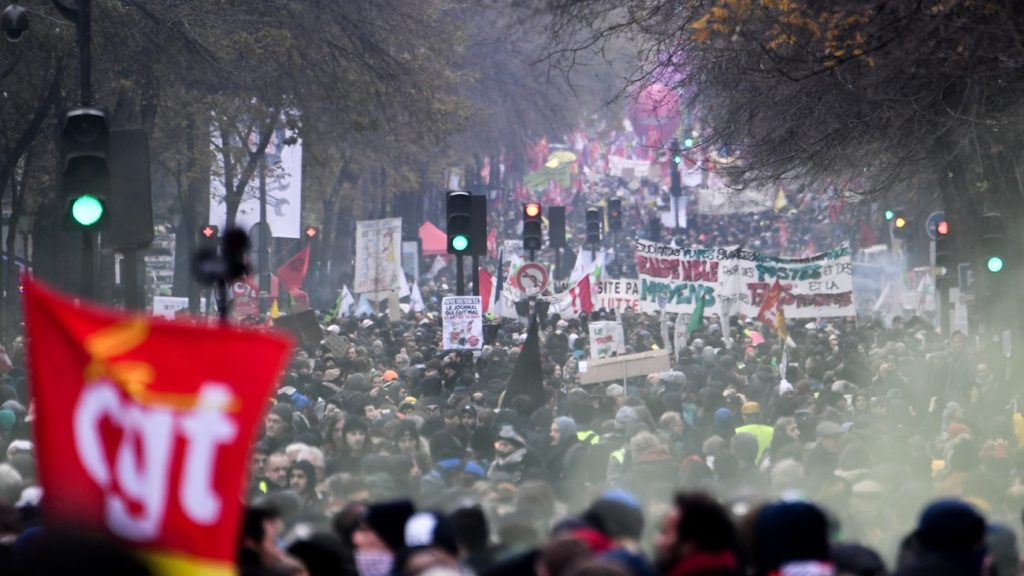The general strike beginning today in France may turn into one of the most important strikes in decades. This morning, workers all over the country left their workplaces and gathered to protest Macron’s latest attack on the working class, an overhaul of France’s retirement system that will cut benefits for millions of people, particularly young people and the elderly.
Hundreds of thousands of people across France—including workers organized in over 30 unions, young people and students, activists, and many Yellow Vests—are pouring into the streets in defiance of Macron’s plans to make further cuts to social programs. The strike has already extended to many of France’s major cities: workers have walked off the job in Paris, Lyon, Nantes, and Marseilles. With 90% of all trains in the country cancelled, metro stations closed throughout Paris, 40% of schools closed, and hundreds of flights cancelled, the country is effectively paralyzed.

Juan Chingo, chief director of the French website Permanent Revolution highlighted the possibility that this mobilization against pension reform may mark the start of a new strike wave in France, one which could develop from a protest against an economic reform to a political general strike which directly challenges Macron’s presidency and calls for him to resign:
Everything indicates that the general strike on December 5 will be a groundbreaking turn of events, probably the largest mobilization in France since those of 1995, 2006, and 2010. A continuation of the atmosphere of “insubordination” first expressed by the Yellow Vests movement, this 24-hour general strike has the potential to continue in the main strongholds of the workers movement and in key sectors like the SNCF [France’s national railway company] and the Parisian public transport system. It could represent a shift in the winds of class struggle. A year after the emergence of the Yellow Vests, a new period is opening with the reunification of important sectors of the workforce, or what is called “Tous ensemble” [“all together”] in French. How far will this process of reunification go? This is a question only class struggle itself can answer.

In a co-signed statement published in French news outlet Libération, major union leaders, activists, workers, professors, and intellectuals laid out the context and demands of the strike:
A year after the beginning of the Yellow Vests movement, Macron is persistently ignoring the anger that is rising in every sector: among teachers, emergency service workers, students, young people demonstrating for the climate, workers and residents of the Rouen region. He ignores the rising rates of suicide in the education sector, in the SNCF, and in the Post Office; the unbearable working conditions in the hospitals; the boom in sub-contracting; the precarious contracts; and the condemned precarity of undocumented immigrants…This system only brings humanity and the environment to their knees. With the pension reform and increasing repression, the government defies the working class and the youth.
It is in this context that the transport workers of RATP [France’s state-owned public transportation company] organized a strong mobilization on September 13 against pension reform. With between 90% and 100% of workers in various sectors taking part in the action, this day proved the strength of a strike with massive participation. Most of all, it set the stage for the general strike of December 5.”
What is at stake is our future. That’s why, in order to ensure that this plan of action is carried out, it is essential to organize general assemblies to organize the demonstrations and remain in charge of our movement. We—trade unionist activists, politicians and associations from different organisations and sectors, Yellow Vests, activists from working class neighborhoods, women and LGBTQ+, young climate activists—support this platform: beginning December 5th, each and every one of us must go on strike in our places of work or study and be determined to continue the fight!
The December 5 general strike will not only be a great day of protest but it will also be a moment that cultivates consciousness and confidence among the masses, a moment that measures and affirms the strength and unity of the working class. It is yet to be seen how the strike will develop and how long it will continue, but so far it shows no signs of slowing down. Monday, December 9 will be a decisive day that will determine whether the movement will engage in a longer strike and expand its political demands.

Translated by Ophelia Raggio











